Sit-in Protest on Chandu’s 15th Anniversary of Matyrdom
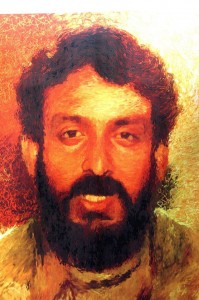 Fifteen years ago, on 31 March 1997, Com. Chandrashekhar was gunned down in broad daylight while addressing a street-corner meeting at JP Chowk, Siwan. The notorious fodder scam had already come to light and the people of Bihar were out on the streets challenging Laloo Prasad’s reign of scams and massacres. Chandrashekhar, who had just returned to his hometown, Siwan, after two successive terms as president of the JNU students’ union, and Shyamnarain Yadav, a local student leader and CPI (ML) activist of Siwan, were calling upon the people of Bihar to intensify the movement against criminalisation of politics and observe Bihar Bandh on April 2. This was too much for the local mafia don-turned-MP – Mohd. Shahabuddin, to stomach and Chandrashekhar and Shyamnarain had to lay down their lives for defying and confronting his reign of terror.
Fifteen years ago, on 31 March 1997, Com. Chandrashekhar was gunned down in broad daylight while addressing a street-corner meeting at JP Chowk, Siwan. The notorious fodder scam had already come to light and the people of Bihar were out on the streets challenging Laloo Prasad’s reign of scams and massacres. Chandrashekhar, who had just returned to his hometown, Siwan, after two successive terms as president of the JNU students’ union, and Shyamnarain Yadav, a local student leader and CPI (ML) activist of Siwan, were calling upon the people of Bihar to intensify the movement against criminalisation of politics and observe Bihar Bandh on April 2. This was too much for the local mafia don-turned-MP – Mohd. Shahabuddin, to stomach and Chandrashekhar and Shyamnarain had to lay down their lives for defying and confronting his reign of terror.
Marking the 15th Anniversary of the killing of former JNUSU President Chandrashekhar, a Protest Sit-in at Jantar Mantar was organised by All India Students’ Association (AISA) at Jantar Mantar on 31 March 2012. The place reverberated with slogans in protest against the recent verdict of a Patna court, which convicted three of the hit men for the murder, but maintained a criminal silence on former RJD MP Mohd. Shahabuddin, at whose behest the murder took place. The Sit-in congregation took a firm resolve to continue the struggle that commenced immediately after com. Chandrashekhar’s demise, for demanding severest punishment for the political conspirator and mastermind behind murder of Com. Chandrashekhar and to carry forward the fight against neoliberal assaults. The gathering included hundreds of students from JNU, Jamia Millia Islamia and Delhi University, along with teachers, intellectuals, writers, and cultural and social activists.
At the outset, Ravi Rai, national general secretary of AISA, welcomed the gathering and called the speakers for the day to the stage. The speakers included Kavita Krishnan, former JNUSU Joint-Secretary and Central Committee member, CPI(ML); CPI(ML) General Secretary Comrade Dipankar Bhattacharya; Prof. KJ Mukherji of JNU. Others who addressed the protest meeting included Prof. Tripta Wahi, Kavita Srivastava of PUCL, social activist Himanshu Kumar, and Anand Pradhan from Indian Institute of Mass Communications. The event was also attended by many of Chandrashekhar’s old comrades and other activists including JNUSU President Sucheta De, general secretary Ravi Prakash and Joint Secretary Firoz Ahmad, CPI(ML) Central Committee member Prabhat Kumar, Delhi State Secretary of CPI(ML) Sanjay Sharma, Sudhir Suman and Bhasha Singh of Jan Sanskriti Manch.
A petition addressed to the Director, CBI was read out and signed by all at the gathering, saying, “Chandrashekhar’s murder generated outrage because a criminal mafia politician, backed by the clout of the then Governments at Bihar and the Centre, ruthlessly eliminated a young activist who chose to work in rural India, to organise the struggles of the poorest of the poor. Now, 15 years after the murder, we reject any notion of closure or justice done – until and unless Shahabuddin, the main political conspirator behind the assassination, is charge-sheeted, convicted, and given the sternest punishment. We demand that the CBI, without further delay, pursue the case to ensure that Shahabuddin is punished for the murder.”
Kavita Krishnan recalled how an unprecedented student movement led by the students of JNU rocked the national capital for over a month following Com. Chandrashekhar’s death and compelled the then I.K. Gujral Government to initiate a CBI enquiry. Blaming the CBI for blindfolding itself to the conspiracy behind Chandu’s murder due to political compulsions, she stressed that the movement would continue until Shahabuddin is charge-sheeted in this case, convicted and given the severest punishment and nothing less is acceptable in the name of justice. She was also severely critical of Mahesh Bhatt’s (who has been contemplating on making a film on com. Chandrashekhar) view on the verdict – “…finally, justice has come to Chandrashekhar… Now, finally, there is some sense of closure to this horrible tragedy, even if it came after 15 years”. Considering the storyline of Mahesh Bhatt’s film, she remarked there is no substance to the film, as it takes no account of the political movements led by Chandrashekhar and their underlying ideological standpoint.
She also spoke of how from Chandrashekhar’s assassination to that of com. Bhaiyya Ram Yadav there has been no respite for the common people in Bihar. Till date there has been no exemplary action against the rampant criminal-politician-police-administration nexus. Commending all progressive sections that have hitherto carried forward and upheld com. Chandrashekhar’s legacy, she concluded that the real memorial of this movement is its role in shattering Shahabuddin’s hegemony over criminalized politics in Bihar and hereafter this fight for justice has to be started afresh, with renewed energy.
In his speech, com. Dipankar Bhattacharya alleged that the CBI enquiry was ordered as a consequence to the demand raised by the powerful student movement that followed the murder, precisely because the CBI was expected to nail the powerful political conspirators behind this assassination. But the CBI has deliberately evaded the recognition of Chandrashekhar’s killing as a political assassination. This silence points to a political motive on its part, to protect the criminal politician Shahabuddin who is known to have been a right-hand man of the RJD chief Laloo Prasad Yadav. Drawing parallels with Sardar Hashmi’s assassination, Com. Dipankar Bhattacharya said that Chandrashekhar was snuffed out since he strove to transform the corrupt system of Bihar. He further pressed the need for a strong student-youth movement against corruption and corporate loot based on the ideals of Chandrashekhar and Bhagat Singh.
Emphasising the importance of Chandrashekhar’s revolutionary politics against the corrupt trajectory of RJD – Shahabuddin nexus, Anand Pradhan pointed to the worth of Chandrashekhar’s movement against feudal elements and criminalisation in Bihar. Musing over Chandrashekhar’s visit during the BHU students’ union election campaign in February 1997 and the disruption of students’ union election thereafter, he spoke of the underlying motive of the State behind the imposition of the undeclared emergency that prevails even today in university campuses in the country. In this context, he also referred to the deliberate ploy of the ruling establishment to foster depoliticisation among students in the country. Furthermore, he pressed for the need for radical revolutionary organisations like AISA to take the centre stage in transforming society.
Prof. KJ Mukherji recalled how the goons supporting the ruling RJD Government of Bihar had fired on students protesting at Bihar Niwas during the agitation against Chandrashekhar’s assassination. This was not only a murder, but also an attempt to kill a dream of revolutionising the system and must be seen in the context of goonda raj and criminalisation of politics prevalent in Bihar. He also said that in spite of all the repression and threats, the spirit of the democratic movement would continue for which com. Chandrashekhar stood for in his lifetime – against neoliberalism, corruption and privatisation.
While discussing the constant neoliberal assaults and assertion of feudal elements, Prof. Tripta Wahi pointed out that the state and the ruling elites’ agenda is very different from that of the masses. She spoke of how the attack of liberalization-privatization-globalization is growing even stronger. The ruling establishment wishes to suppress the dreams and aspirations of young people so that there can be no space to struggle. The challenge is to keep alive the spirit of struggle even in these dark times, for without the revolutionary spirit there can be no change in society. Citing Delhi University’s example wherein the teaching and student community is restricted to hold meetings on several vital questions, Prof. Wahi stressed the intrusion of neoliberal agenda in Indian academic circles. Therefore, a mammoth task transforming the society, by giving a fitting reply to these exploiting classes, lies in front of all progressive and radical sections in the present scenario.
The event also witnessed a multitude of cultural performances by different groups. Cultural teams of students of Jamia Millia and DU, and Asmita presented an array of rousing songs. Several poets including Anamika, Manglesh Dabral, Madan Kashyap, Sanjay Kundan, Mukul Saral, Shobha Singh and the revolutionary poet, Ramshankar Vidrohi, read out poems in Chandrashekhar’s memory. Lokesh Jain’s team presented an emotive ‘marsiya’ dedicated to Chandrashekhar.
The meeting concluded with a vote of thanks by AISA President Sandeep Singh. Thanking the intellectuals, teachers, and others present on the occasion on behalf of AISA, he called for strengthening and carrying forward the struggle for justice with regard to Chandrashekhar’s murder. He pointed out that in the post-Soviet collapse scenario, when feasibility of Marxism was being questioned, Chandrashekhar emerged as a firm upholder of democratic rights against neoliberal assaults. Discussing the undeclared emergency that prevails in campuses across the country today, he asserted AISA’s attempts at challenging this status quo. Emphasising the fact that at a time when feudal-fascist forces are targeting activists across the country, he said that it is our task to ensure that proper justice is meted out to these comrades who laid down their lives fighting for a just society. The sit-in concluded with rousing slogans stating, “Chandrashekhar we’ll take your mission to its conclusion!”
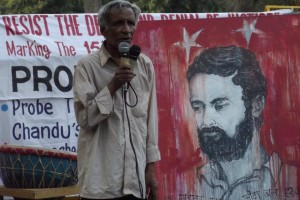
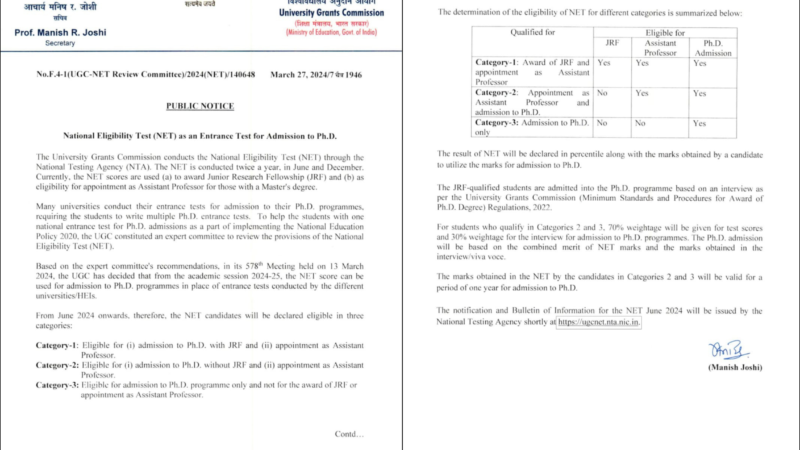
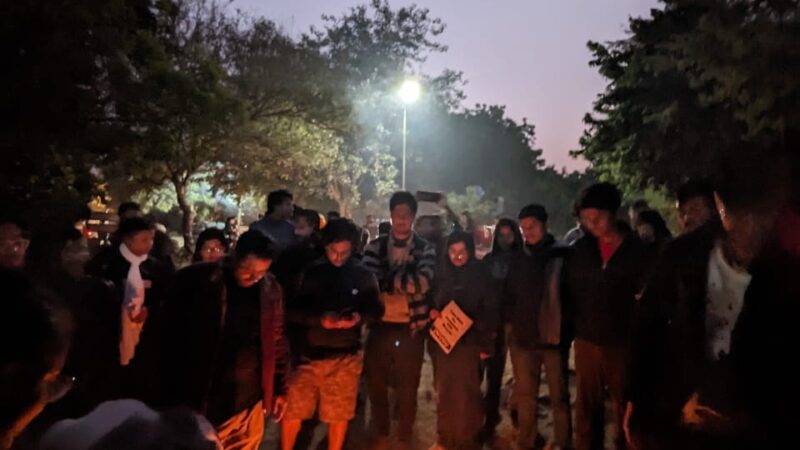
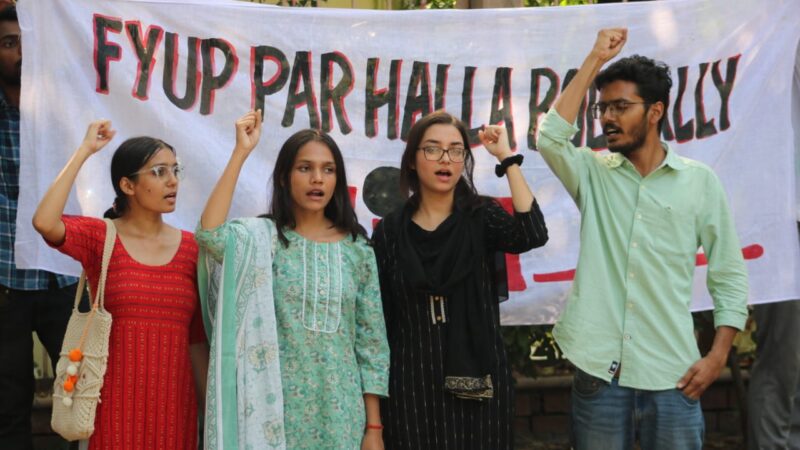
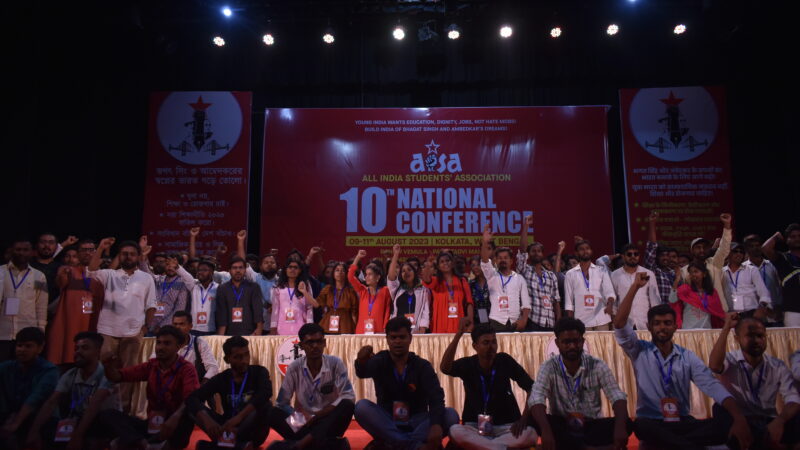
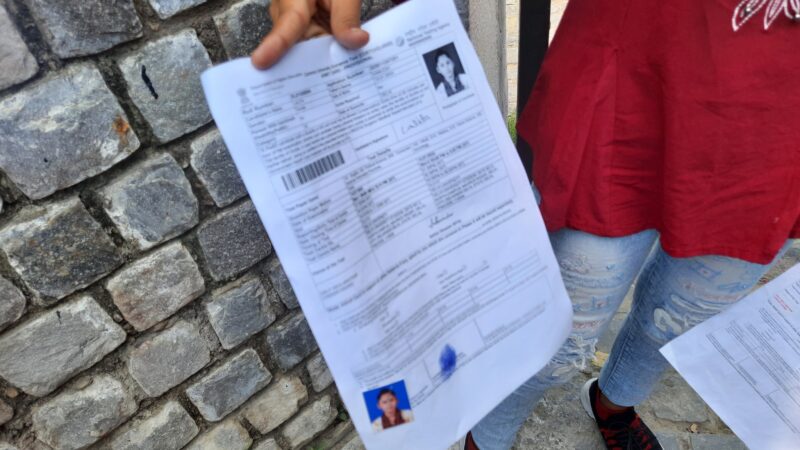
sir i am student of patna college patna university where students of hostels have simply become criminal,their only jb is to molest girls and disturb non hostel boys.point of sorrow is they r backed by ur organisation.PLEASE SIR SAVE US BA PART 1,POL SCI,ROLL NO.145